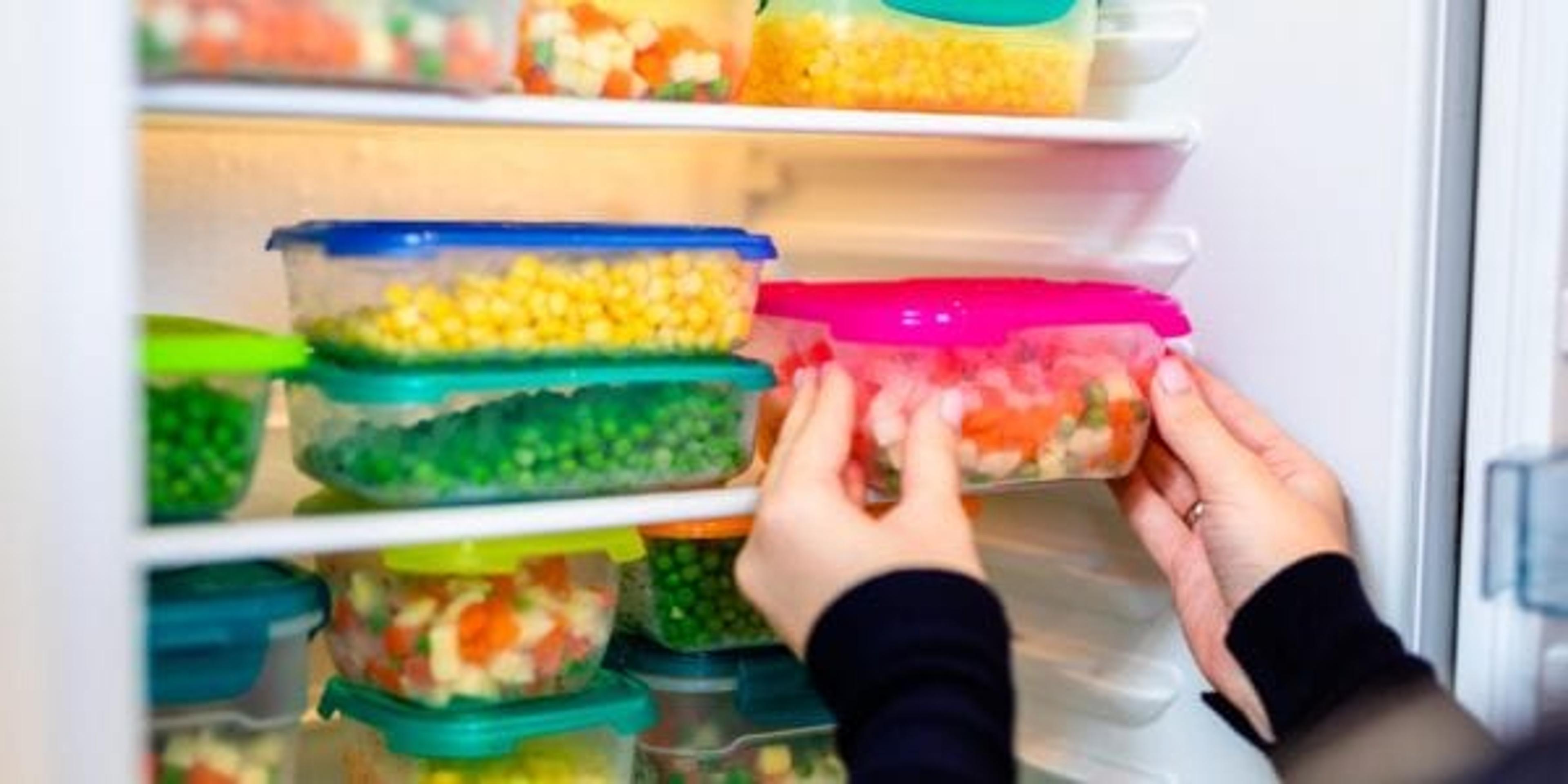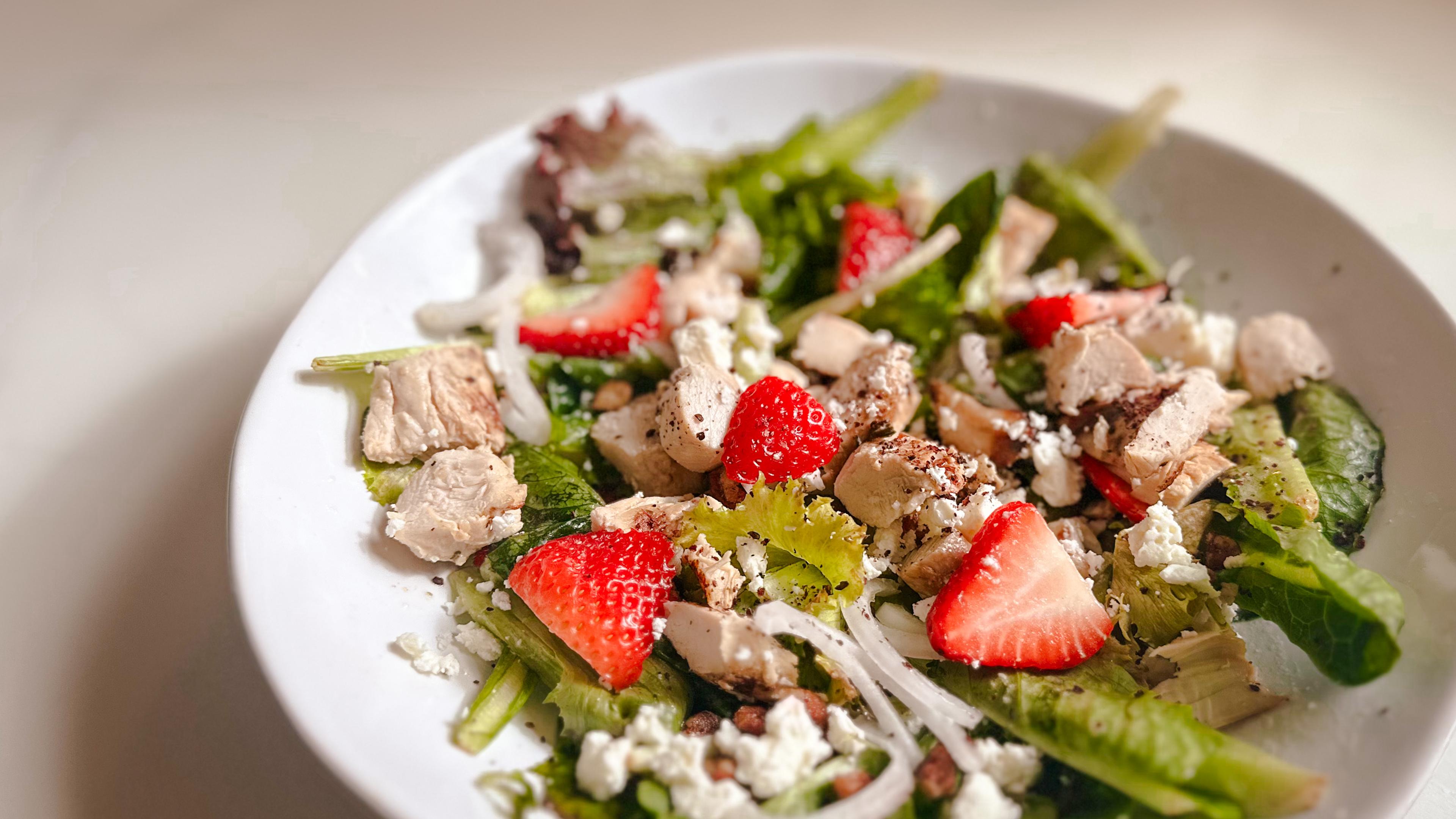Food Storage Hacks to Keep You Healthy and Avoid Waste

Gabrielle Dolenga
| 3 min read

“Not again,” you say to yourself as you place a squishy tomato and freezer-burned chicken breast on the kitchen counter. It’s been less than a week since your last trip to the grocery store and somehow everything you purchased has already spoiled.
The short lifespan of food often has little to do with the product itself. More often, food spoils because it is stored improperly.
Not only is prematurely spoiled food a wasted expense, it can also be a health hazard. Some foods, when not cared for correctly, can cause a variety of food-borne illnesses. Use these hacks to better understand how to properly store certain types of food.
Fruits: Non-cherry stone fruits, avocados, tomatoes, mangoes, melons, apples and pears will continue to ripen if left sitting out on a counter top, while items like bell peppers, grapes, citrus fruits and berries will deteriorate and should be refrigerated. Bananas in particular ripen very quickly, and will also speed the ripening of any nearby fruits.
Vegetables: The majority of vegetables can be stored in the refrigerator. Before storing, remove ties and rubber bands and trim any leafy ends. If storing the veggies in a bag, make sure to puncture some holes to allow for good air flow. Leafy greens can be washed before storing by soaking them in a sink full of water. Soft herbs and mushrooms should not be washed until right before they are used. Pack vegetables loosely in the refrigerator. The closer they are, the faster they will rot. Potatoes and onions should be stored far away from any other produce. They produce a gas that causes other fresh foods to ripen and rot before their time.
Meat: All meat should be stored in an air-tight container or bag at a maximum of 40 degrees Fahrenheit. Storing meat at a higher temperature can lead to food-borne illness. When transferring meat from the grocery to store to the home, avoid leaving it in the car or on the counter for prolonged periods. When freezing meats, make sure to use a sealing bag or container to avoid freezer burn and contamination. If frozen meat has been thawed, it cannot be re-frozen. Most importantly, store raw meat separately, away from other foods that could be contaminated.
Dairy: Milk and cheeses should be transferred to the refrigerator immediately after purchase. Milk, yogurt and semi-hard cheeses can be frozen for about three months. If freezing, place these items in separate air-tight containers, leaving one inch of space for expansion once frozen. Buttermilk, soft cheeses and eggs should never be frozen.
Leftovers or Meal Prep: Dishes should be refrigerated in an air-tight container or bag soon after being prepared. Do not transfer hot food directly to the refrigerator as this increases the chance of food-borne illness. Instead, place in an open container or bag, wait for the food to cool to room temperature, then cover and store. Label all containers with the date they were put in the refrigerator. On average, prepared food needs to be thrown away after four days.
Do you have any food storage hacks that work for you? Let us know in the comments!
If you liked this post, you might also enjoy:
Photo Credit: hedgehog94





